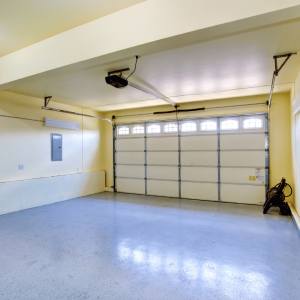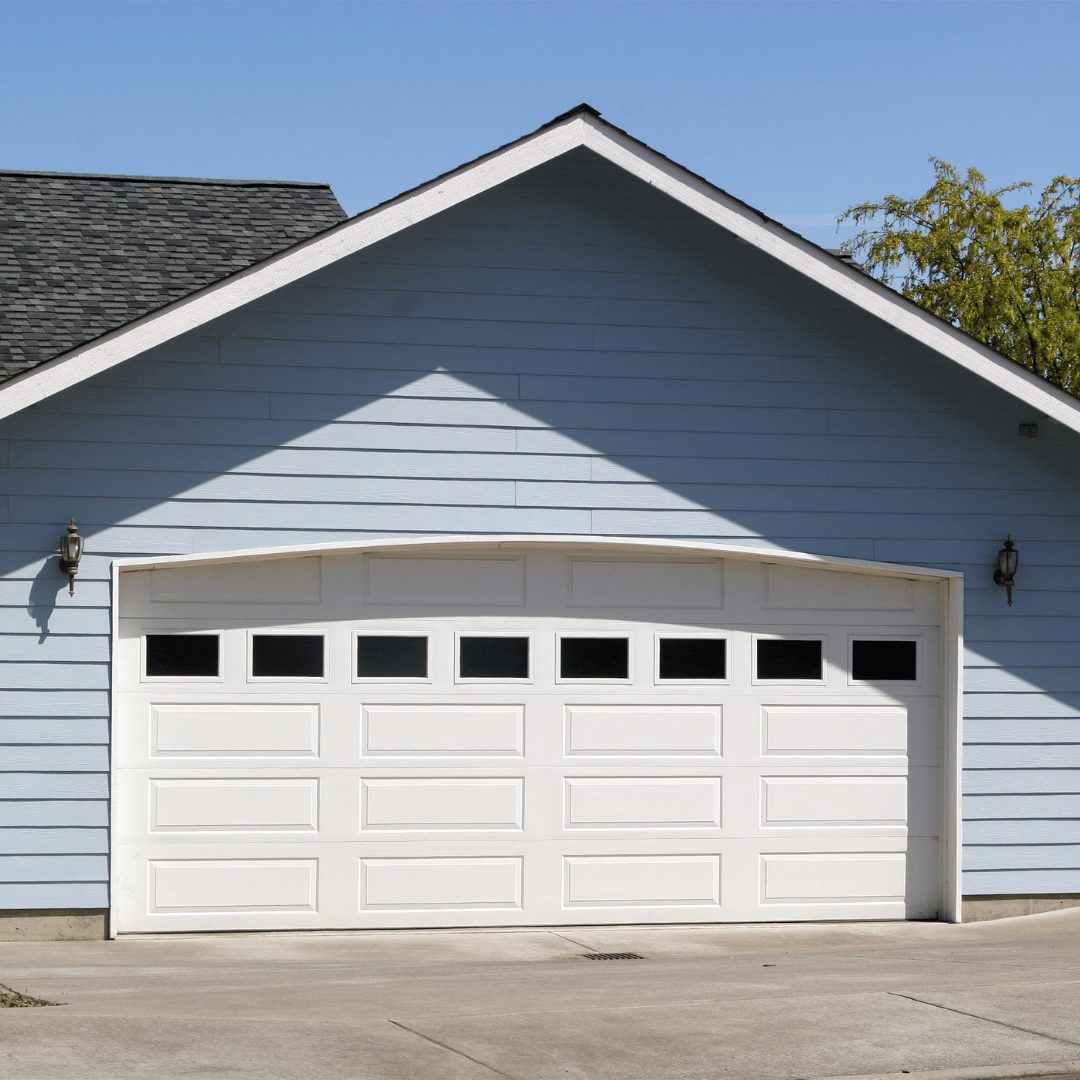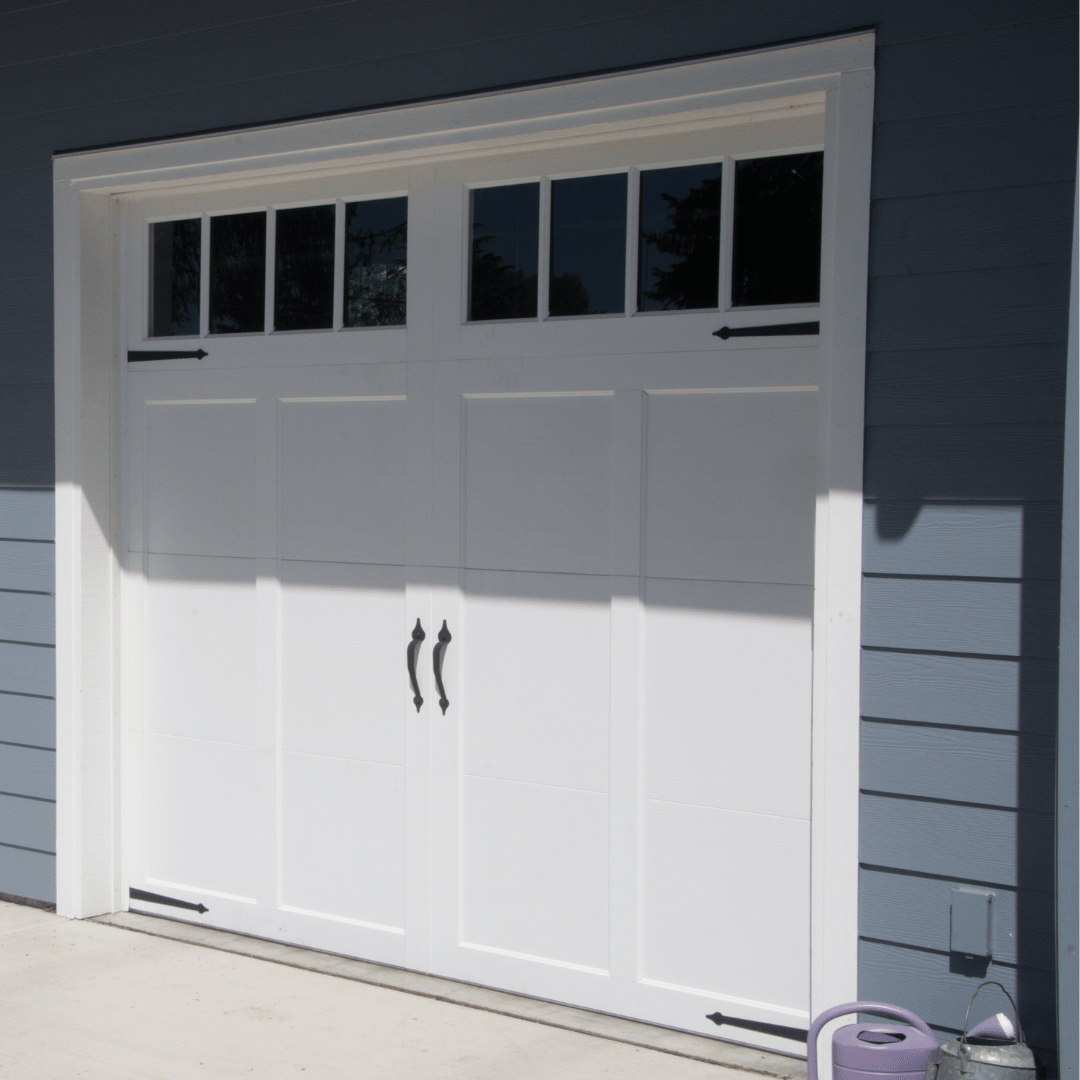
The Ultimate Guide to Garage Door Hinge Lubricant
Maintaining your garage door hinges is essential for ensuring smooth and reliable operation of your garage door. Proper lubrication of these hinges not only helps to keep your garage door functioning quietly but also extends its lifespan and reduces the risk of unexpected repairs. Lubrication minimizes friction and wear, making it easier for your door to open and close without issues.
In the realm of Preventative Home Maintenance, taking care of your garage door is as important as other tasks like Gutter Cleaning, Pressure Washing, and Window Washing. Regular maintenance helps you avoid costly repairs and ensures that all components of your home are in optimal condition. This guide will walk you through the best lubricants for garage door hinges, how to apply them effectively, and answer common questions to help you maintain your garage door in top shape.
What is the Best Lubricant for Garage Door Hinges?
Selecting the right lubricant for your garage door hinges is crucial for ensuring smooth operation and long-lasting performance. Here’s a breakdown of some of the best options available:
Silicone Lubricants
- Pros:
- Water-Resistant: Silicone lubricants provide excellent protection against moisture, which helps prevent rust and corrosion on hinges.
- Doesn’t Attract Dirt: Unlike some other lubricants, silicone doesn’t attract dirt and debris, which helps keep your hinges cleaner for longer.
- Long-Lasting: Offers durable lubrication, reducing the frequency of reapplications.
- Cons:
- Cost: Generally more expensive than other options.
- Application: May require more careful application to ensure even coverage.
Lithium Grease
- Pros:
- Thick and Durable: Provides a heavy-duty layer of lubrication that withstands extreme temperatures and heavy use.
- Protective: Good at reducing friction and preventing wear on hinges.
- Cons:
- Dust Attraction: Can attract dust and dirt over time, which might require more frequent cleaning.
- Application: Can be more challenging to apply evenly.
Teflon-Based Lubricants
- Pros:
- Reduced Friction: Teflon lubricants are effective at reducing friction, which helps in smoother operation of garage door hinges.
- Moisture-Resistant: Offers protection against moisture and rust.
- Cons:
- Price: Tends to be more expensive than basic lubricants.
- Application: Requires careful application to avoid overuse.
For Interior Home Maintenance, a lubricant like lithium grease might be preferred due to its durability and resistance to wear. For Exterior Home Maintenance, where exposure to moisture is a concern, silicone or Teflon-based lubricants are ideal due to their water-resistant properties.
Choosing the right lubricant for your garage door hinges is an important part of your home’s Preventative Home Maintenance. By ensuring your hinges are well-lubricated, you can avoid common issues such as squeaks, stiffness, and premature wear, contributing to the overall efficiency and longevity of your garage door system.
How Do You Lubricate Garage Hinges?
Proper lubrication of your garage door hinges is key to maintaining smooth and efficient operation. Here’s a step-by-step guide to ensure you perform this task effectively:
Clean the Hinges
- Purpose: Removing old lubricant, dirt, and debris is crucial for ensuring that the new lubricant adheres properly and performs effectively.
- How-To: Use a rag or cloth to wipe down the hinges. For stubborn dirt or grease, you may need a mild cleaner or degreaser. Ensure the hinges are completely dry before applying new lubricant.
Apply the Lubricant
- Purpose: Applying the lubricant helps reduce friction and wear on the hinge components.
- How-To: Choose the lubricant that best suits your needs (silicone, lithium grease, or Teflon-based). Apply the lubricant directly to the hinge pins and moving parts. It’s best to follow the manufacturer’s instructions on the product label for optimal results.
- Tip: Use a small brush or applicator if the lubricant comes in a form that is difficult to control or if you need to reach tight areas.
Wipe Off Excess
- Purpose: Removing excess lubricant prevents it from dripping onto other surfaces and attracting dust and dirt.
- How-To: After applying the lubricant, use a clean rag to wipe off any excess. This ensures that only the necessary amount of lubricant remains on the hinges.
Test the Door
- Purpose: Testing ensures that the lubricant has been applied correctly and that the garage door operates smoothly.
- How-To: Open and close the garage door several times to allow the lubricant to spread evenly throughout the hinge mechanism. Listen for any unusual noises and check for smooth operation.
Regular maintenance of your garage door hinges is an important part of your home’s Interior Home Maintenance and Exterior Home Maintenance. Keeping these components well-lubricated will help you avoid issues such as squeaking, sticking, or increased wear and tear.
Incorporating this simple task into your Preventative Home Maintenance routine can save you from more significant repairs down the line. If you need assistance with broader home maintenance tasks, including Gutter Cleaning, Pressure Washing, Window Washing, or Dryer Vent Cleaning, HomeSmiles offers comprehensive services to keep your home in excellent condition.
Can You Use WD-40 on Garage Door Hinges?
WD-40 is a versatile product that many homeowners turn to for various lubrication and maintenance tasks. However, when it comes to garage door hinges, it’s important to understand its advantages and limitations.
Advantages of Using WD-40
- Versatility: WD-40 can be used for a wide range of applications, including loosening rusted or stuck parts. It can temporarily ease the movement of garage door hinges.
- Availability: It’s readily available in most households and stores, making it a convenient option for quick fixes.
Limitations of Using WD-40
- Not a Long-Term Solution: WD-40 is more of a solvent than a lubricant. While it may provide short-term relief from squeaks and stiffness, it doesn’t offer the long-lasting lubrication that specialized products do.
- Attracts Dirt: WD-40 can attract dust and debris, which may lead to the accumulation of grime around the hinges. Over time, this can result in more problems and require more frequent cleaning and maintenance.
- Moisture Sensitivity: While it provides some level of moisture protection, it is not as effective as silicone or Teflon-based lubricants for repelling water and preventing rust.
For Preventative Home Maintenance, it’s generally recommended to use a lubricant specifically designed for garage door hinges, such as silicone-based or lithium grease products. These options offer more durable and long-lasting protection.
WD-40 may be suitable for temporary fixes or when you need to quickly address a minor issue, but for optimal performance and to avoid frequent reapplication, consider using a dedicated garage door lubricant. Incorporating this into your Exterior Home Maintenance routine will help ensure your garage door remains in good working order.
If you’re managing a variety of home maintenance tasks, including Gutter Cleaning, Pressure Washing, Window Washing, or Dryer Vent Cleaning, HomeSmiles is here to help with all your needs. Regular attention to these aspects of your home will contribute to a well-maintained and efficiently running household.
Can I Use 3-in-1 for a Garage Door?
3-in-1 Oil is a popular multi-purpose lubricant that many homeowners use for a variety of applications, including garage door maintenance. Here’s a closer look at its effectiveness and suitability for garage door hinges:
Advantages of Using 3-in-1 Oil
- Versatility: 3-in-1 Oil is designed to lubricate, clean, and protect. It can be useful for a variety of household tasks, including garage door maintenance.
- Penetrating Action: It penetrates rust and corrosion, helping to loosen stuck parts and reduce friction.
- Ease of Use: Its availability and ease of application make it a convenient choice for quick lubrication needs.
Limitations of Using 3-in-1 Oil
- Not Specialized: While 3-in-1 Oil is effective for many applications, it may not provide the long-lasting protection needed for garage door hinges. Specialized lubricants such as silicone or lithium grease are formulated specifically for high-load and high-friction environments.
- Dust Attraction: Similar to WD-40, 3-in-1 Oil can attract dust and debris over time, potentially leading to more frequent cleaning and maintenance.
- Frequency of Application: You may need to reapply 3-in-1 Oil more often than with other lubricants designed specifically for garage doors.
For Preventative Home Maintenance, using a dedicated garage door lubricant, such as a silicone-based or Teflon-based product, is generally preferred. These lubricants provide better long-term protection and reduce the frequency of maintenance.
3-in-1 Oil can be a viable option if you need a quick and easy fix, but for the best results in Exterior Home Maintenance, consider investing in a product designed specifically for garage doors. This will ensure that your hinges stay lubricated and function smoothly for an extended period.
If you require assistance with other home maintenance tasks, such as Gutter Cleaning, Pressure Washing, Window Washing, or Dryer Vent Cleaning, HomeSmiles offers a comprehensive range of services to keep your home in top condition. Regular maintenance helps to prevent issues and ensures that all aspects of your home are running efficiently.
Does 3-in-1 Garage Door Lubricant Contain Silicone?
3-in-1 Garage Door Lubricant is often sought after for its versatility, but it’s important to understand its composition to ensure it meets your needs. Here’s what you need to know about silicone content in 3-in-1 Garage Door Lubricant:
Silicone Content in 3-in-1 Lubricants
- Variety of Formulations: 3-in-1 Oil offers different formulations, and not all of them contain silicone. Some 3-in-1 products are designed to be multi-purpose lubricants without specific silicone additives.
- Silicone-Based Products: There are specific 3-in-1 products that are formulated with silicone. These versions provide enhanced lubrication and moisture protection, making them suitable for use on garage door hinges.
- Check the Label: To determine whether a specific 3-in-1 Garage Door Lubricant contains silicone, always check the product label or manufacturer’s specifications. This information will clarify the presence of silicone and its intended benefits.
Benefits of Silicone-Based Lubricants
- Moisture Resistance: Silicone-based lubricants are excellent at repelling moisture, which helps to prevent rust and corrosion on metal components.
- Long-Lasting Lubrication: They provide a more durable layer of lubrication, reducing the frequency of maintenance and improving the longevity of the hinges.
- Non-Sticky Formula: Silicone lubricants don’t attract dust and debris as much as other types of lubricants, keeping the hinges cleaner.
In the context of Preventative Home Maintenance, choosing a lubricant with silicone can offer better performance for garage door hinges. Silicone-based products are particularly effective for Exterior Home Maintenance tasks where moisture and environmental exposure are concerns.
For a well-maintained garage door, consider using a lubricant specifically designed for such applications, whether it contains silicone or another advanced formula. If you need help with broader home maintenance needs, such as Gutter Cleaning, Pressure Washing, Window Washing, or Dryer Vent Cleaning, HomeSmiles provides expert services to keep your home in excellent shape. Regular maintenance of all home systems ensures smooth operation and helps to avoid costly repairs.
Proper lubrication of garage door hinges is a vital aspect of maintaining the smooth and efficient operation of your garage door. By selecting the right lubricant and applying it correctly, you can ensure that your garage door operates quietly, reduces wear and tear, and extends its lifespan.
Here’s a quick recap of the key points:
- Best Lubricants: Silicone-based, lithium grease, and Teflon-based lubricants offer the best performance for garage door hinges. Each has its advantages, so choose based on your specific needs and conditions.
- Application Process: Clean the hinges first, apply the lubricant evenly, wipe off excess, and test the door to ensure smooth operation.
- WD-40 and 3-in-1 Oil: While convenient, WD-40 is more of a temporary solution and 3-in-1 Oil may not always offer the specialized protection you need. Look for silicone or other high-performance lubricants for longer-lasting results.
- Preventative Maintenance: Regular lubrication is a key part of Preventative Home Maintenance. Keeping your garage door hinges well-maintained can prevent more significant issues and ensure that your door functions properly.
Integrating these practices into your Interior Home Maintenance and Exterior Home Maintenance routines will help you avoid unexpected repairs and maintain the overall efficiency of your home. Whether you need assistance with Gutter Cleaning, Pressure Washing, Window Washing, or Dryer Vent Cleaning, HomeSmiles is here to support you with a comprehensive range of home maintenance services.
By focusing on regular upkeep and choosing the right products, you can keep your garage door in top shape and enjoy a hassle-free operation for years to come.
Is your garage door ready for a smooth, quiet operation? Don’t wait until minor issues become major problems—take action today to ensure your hinges are properly lubricated and maintained.
Contact HomeSmiles for expert guidance on garage door maintenance and other essential home services. Whether you need help with Preventative Home Maintenance, Gutter Cleaning, Pressure Washing, Window Washing, or Dryer Vent Cleaning, our comprehensive 18-point service will keep your home running efficiently and effectively.
Schedule your maintenance service now and enjoy peace of mind knowing that all those “honey-do” items on your list are handled by professionals. Visit our website or call us today to book your appointment and keep your home in top condition!
HomeSmiles – Your Partner in Home Maintenance Excellence.
- Protecting Your Property: Why the Right Cleaning Method Makes All the Difference
- The #1 Thing That’s Dulling Your Curb Appeal (And How to Fix It)
- How Maintenance Bundles Provide Peace of Mind for Busy Small Business Owners and Facility Managers
- Essential vs. Complete Home Packages: Choosing the Right Preventive Care for Your Property
- How a Simplified Service Model Benefits Both Homeowners and Franchisees Alike


